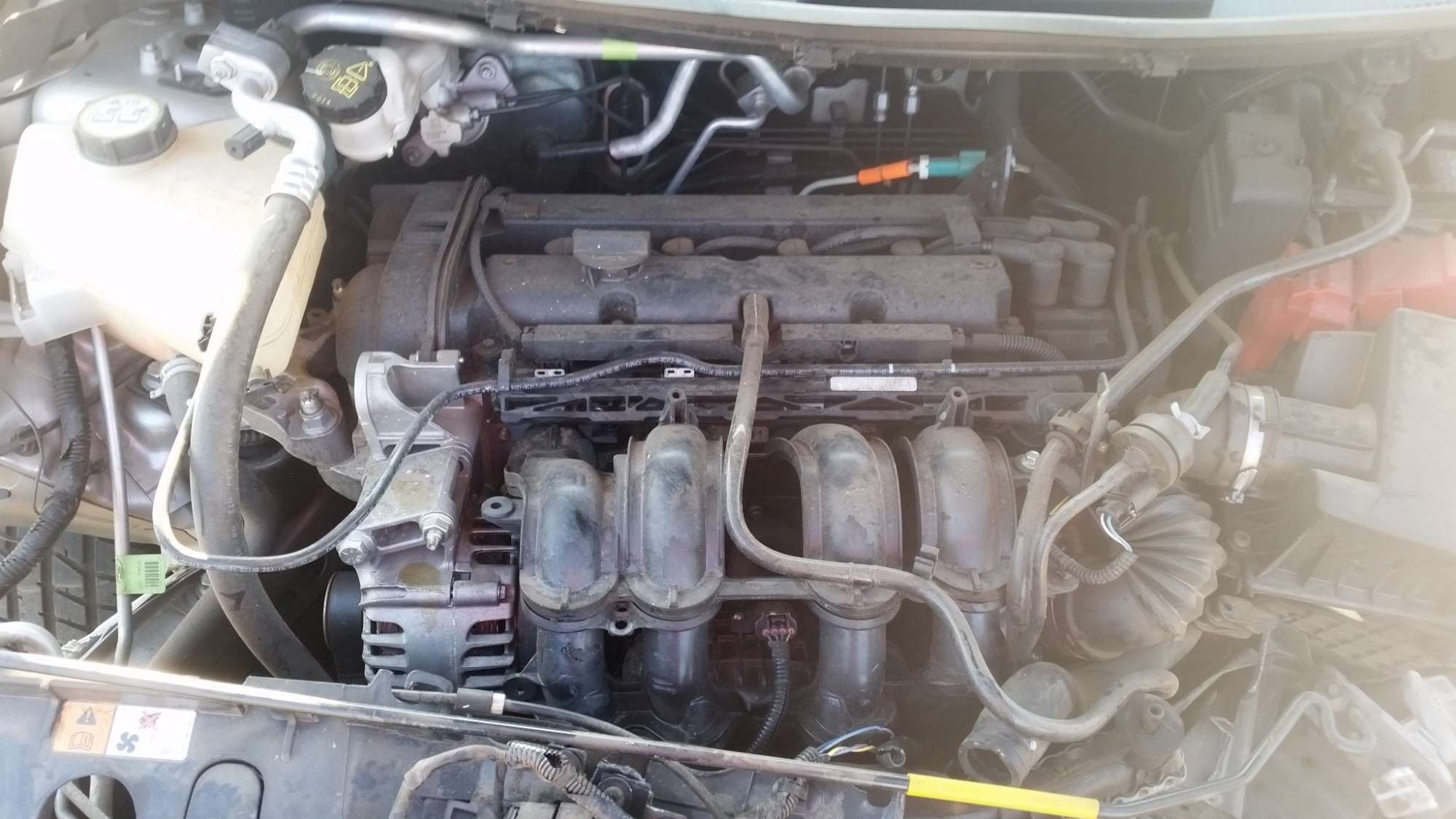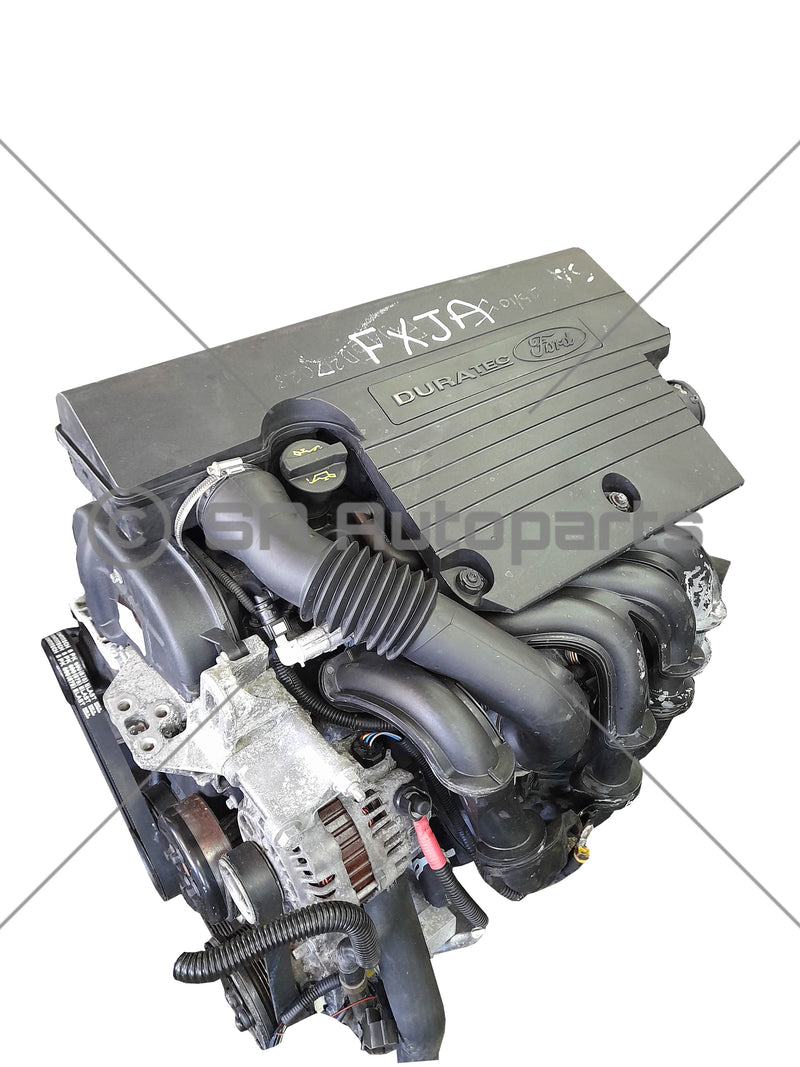The Role of a Quality Ford Fiesta Engine in Vehicle Performance
The Role of a Quality Ford Fiesta Engine in Vehicle Performance
Blog Article
The Future of Engines: Innovations Driving Sustainable Power Solutions
As the vehicle market browses the imperative transition towards sustainability, the future of engines is significantly specified by groundbreaking technologies. Electric engine innovations, alongside appealing growths in hydrogen gas cells and biofuels, are reshaping the landscape of power remedies. The appearance of hybrid systems additionally complicates this advancement, presenting both opportunities and difficulties to decrease emissions properly. Coupled with the assimilation of expert system in engine design, these technical strides elevate critical inquiries concerning their long-lasting practicality and influence on traditional paradigms. What might this suggest for the industry and consumers alike?
Electric Engine Developments
The advancement of electric engine growths represents a pivotal change in the aerospace and automobile industries, driven by the immediate need for lasting alternatives to nonrenewable fuel sources. This shift is characterized by substantial improvements in battery technology, power electronic devices, and electric motor layout, which collectively improve the effectiveness and performance of electrical engines.
Current developments have actually resulted in the production of lighter, much more energy-dense batteries, such as lithium-silicon and solid-state batteries, which assure longer varieties and much shorter charging times. Furthermore, renovations in electric motor performance, such as using long-term magnets and progressed cooling systems, make it possible for electric engines to run properly under varying conditions. These improvements not only enhance vehicle performance however additionally add to a reduction in general power intake.
Furthermore, the assimilation of sophisticated software application formulas has optimized power management in electric automobiles, enabling regenerative stopping and predictive charging techniques. As makers significantly welcome electrical propulsion, the automotive and aerospace markets are observing a standard shift towards greener technologies. This development not just fulfills governing demands but also straightens with consumer choices for eco-friendly transportation services, solidifying electrical engines as a foundation of future lasting movement.
Advancements in Biofuels
As the aerospace and automobile sectors significantly focus on sustainable energy sources, innovations in biofuels arise as a corresponding remedy to electrical engines. Biofuels, obtained from organic products such as crops, waste, and algae, present a cutting-edge method for minimizing greenhouse gas discharges and reliance on nonrenewable fuel sources.
Current research study has concentrated on improving the effectiveness and sustainability of biofuel manufacturing. Second-generation biofuels use non-food feedstocks, reducing competitors with food supply and minimizing environmental influence. Developments in synthetic biology have enabled the engineering of microbes to create biofuels a lot more efficiently, leading to greater yields and lower manufacturing prices.
Furthermore, the growth of drop-in biofuels permits smooth integration into existing framework, allowing a smoother change for markets commonly depending on fossil gas. ford fiesta engine. These fuels can be used in present engines without modifications, facilitating their fostering throughout various markets
Investments in biofuel modern technology, together with encouraging policies, are crucial to drive development and scalability. As the international area seeks to deal with environment change, biofuels use a practical, immediate service that straightens with the overarching objective of sustainability in transportation and aeronautics.
Hydrogen Gas Cell Innovation
A growing number of business and scientists are checking out hydrogen gas cell modern technology as a viable alternative to conventional power sources in transportation and power systems. This modern technology converts chemical energy from hydrogen right into power via an electrochemical response, with water as the only byproduct, making it an eco-friendly choice.
The core of hydrogen fuel cells is the fuel cell stack, where hydrogen molecules are split right into electrons and protons. The circulation of electrons produces power, while protons relocate with a membrane to combine with oxygen from the air, forming water. This procedure leads to high effectiveness and low emissions, positioning hydrogen fuel cells as an essential try here player in the shift to lasting power.
Substantial improvements have actually been made in enhancing the toughness and effectiveness of fuel cells, along with minimizing costs via cutting-edge production methods. Additionally, the development of hydrogen manufacturing methods, such as electrolysis powered by sustainable power resources, enhances the sustainability of the total system. As facilities for hydrogen refueling expands and manufacturing techniques become extra effective, hydrogen gas cell modern technology holds wonderful pledge for decarbonizing various markets, including heavy-duty transport and fixed power generation.
Hybrid Systems and Their Influence
Crossbreed systems represent a significant evolution in sustainable engine technology, merging traditional internal combustion engines with electrical propulsion to optimize energy efficiency and decrease emissions (ford fiesta engine). This dual approach allows lorries to make use of both source of power, making it possible for higher versatility in energy consumption and reducing reliance on nonrenewable fuel sources

In addition to environmental benefits, hybrid systems use customers a practical shift towards completely electric cars. They ease array anxiousness by incorporating the ease of fuel with the benefits of electrical propulsion, making them an appealing choice for a broader target market.
The Function of AI in Engine Style
Leveraging sophisticated algorithms and artificial intelligence techniques, the automotive sector is significantly integrating expert system (AI) into engine layout processes. AI enhances the efficiency and effectiveness of design by evaluating huge datasets to determine ideal setups and performance parameters. This capacity enables engineers to imitate different operating conditions and forecast engine habits under multiple circumstances, dramatically minimizing the time and price connected with traditional Your Domain Name prototyping approaches.
Additionally, AI facilitates the growth of advanced products and combustion procedures tailored for sustainability. By enhancing fuel effectiveness and minimizing exhausts, AI-driven styles align with international campaigns focused on reducing the carbon impact of automotive engines. Maker learning algorithms can likewise forecast maintenance requirements, causing improved dependability and long life of engine components.
Additionally, AI is instrumental in the combination of electrification modern technologies, such as hybrid systems, where it can optimize battery administration and power recuperation processes. As the market relocates in the direction of more sustainable power remedies, the role of AI in engine style comes to be increasingly crucial, driving innovation and improving the efficiency of future engines. Inevitably, the cooperation in between AI and engine design advertises a brand-new era of smarter, cleaner, and much more effective auto technologies.

Verdict
Finally, the future of engines is being shaped by a merging of cutting-edge technologies that prioritize sustainability. Electric engine developments, biofuel advancements, hydrogen gas cells, and crossbreed systems jointly add to a substantial reduction in emissions and environmental impact. Furthermore, the combination of expert system in engine layout her latest blog enhances efficiency and performance. These transformative services highlight a commitment to producing a cleaner, a lot more lasting vehicle landscape, inevitably profiting both society and the setting.
Electric engine innovations, together with encouraging advancements in hydrogen fuel cells and biofuels, are improving the landscape of power options. Furthermore, improvements in electrical motor efficiency, such as the use of permanent magnets and progressed cooling down systems, make it possible for electrical engines to operate successfully under varying problems. By optimizing fuel efficiency and lessening exhausts, AI-driven styles line up with global efforts intended at reducing the carbon footprint of automobile engines. As the sector relocates towards more sustainable power services, the duty of AI in engine style ends up being progressively vital, driving technology and enhancing the efficiency of future engines. Electric engine innovations, biofuel developments, hydrogen gas cells, and crossbreed systems jointly add to a substantial decrease in emissions and environmental impact.
Report this page